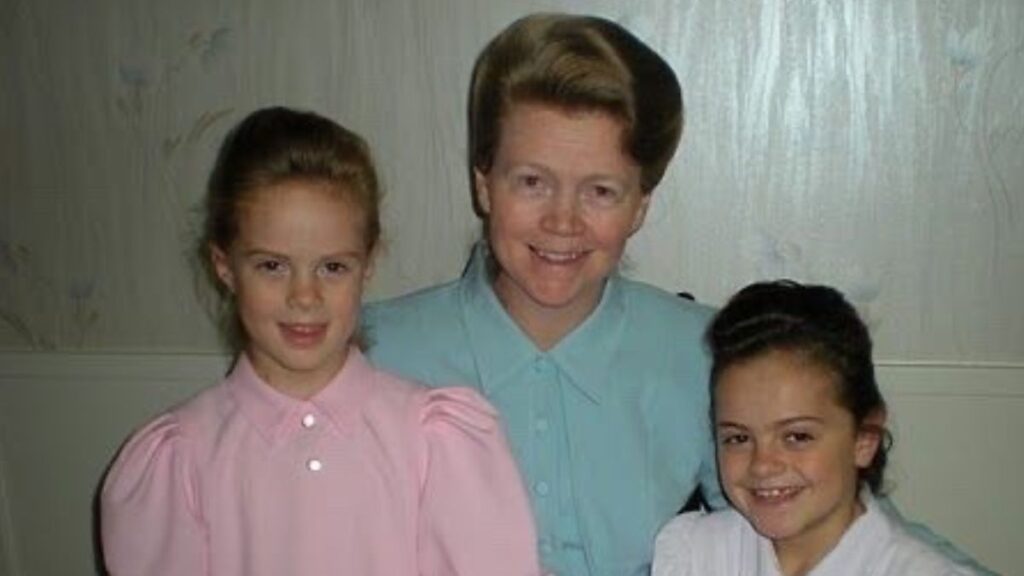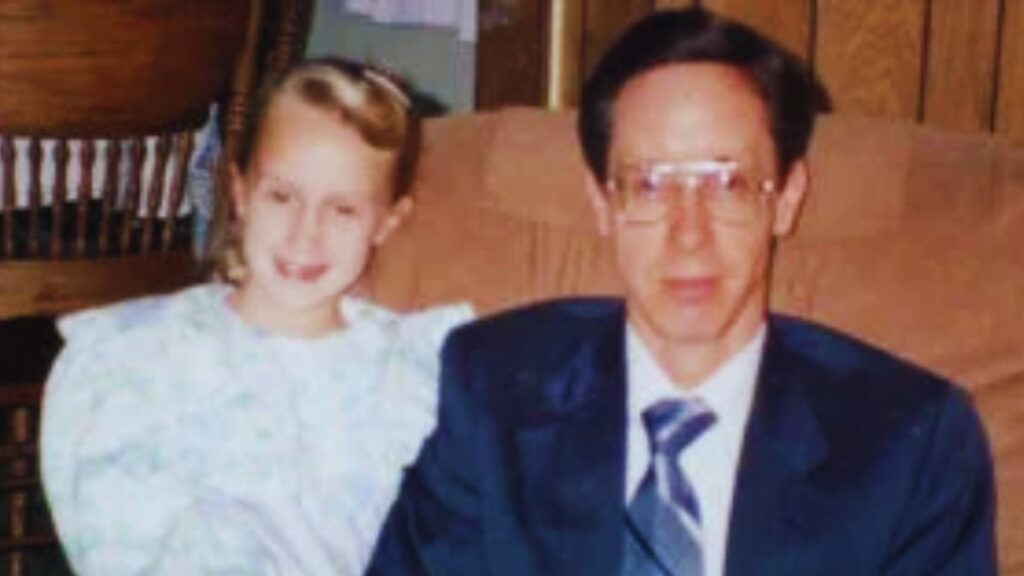Merrianne Jessop is a figure who came into the public eye through a series of events that highlighted the challenges, controversies, and complexities surrounding fundamentalist religious groups in the United States. Her life became the subject of national discussion due to her association with the Fundamentalist Church of Jesus Christ of Latter-Day Saints (FLDS) and its former leader, Warren Jeffs. Jessop’s experiences reveal the struggle for personal autonomy within insular religious communities and the impacts of controversial religious beliefs on young lives. Her story is both harrowing and enlightening, shedding light on the larger dynamics of the FLDS community and offering insights into the plight of individuals caught between personal desires and communal expectations.
profile summary
| Aspect | Details |
|---|---|
| Full Name | Merrianne Jessop |
| Affiliation | Former member of the Fundamentalist Church of Jesus Christ of Latter-Day Saints (FLDS) |
| Known For | Her connection to FLDS leader Warren Jeffs and involvement in high-profile legal proceedings related to FLDS practices |
| Key Life Event | Removal from FLDS community during the 2008 Texas raid on the Yearning for Zion Ranch |
| Significant Figure | Warren Jeffs (former FLDS leader and convicted felon with whom Jessop was reportedly spiritually connected) |
| Challenges Faced | Adjustment to mainstream society, culture shock, and lack of secular education |
| Impact on FLDS | Symbolizes the inner struggles and human rights issues within FLDS; influenced the public perception of the community |
| Broader Implications | Raised awareness about the balance between religious freedom and child protection |
| Legal Proceedings | Involved in testimony and evidence during legal cases against Warren Jeffs |
| Life After FLDS | Working to integrate into mainstream society, facing challenges related to independence and self-determination |
| Legacy | Represents resilience and the pursuit of autonomy despite restrictive upbringing in a controlled religious setting |
| Public Perception | Viewed as both a victim of FLDS practices and a figure symbolizing the need for child protection within isolated groups |
Early Life in the FLDS Community
Merrianne Jessop was born into the FLDS, a fundamentalist religious group that practices polygamy and maintains strict control over members’ lives. This group, led by Warren Jeffs until his imprisonment, isolated itself from mainstream society, building insular communities where members adhered to strict doctrines. Children in the FLDS were often sheltered from outside influences, limiting their education to religious teachings and keeping them away from secular media and information. In these communities, roles were rigidly defined, with women and girls expected to marry young and devote themselves to family life.
As a young girl growing up in this closed environment, Merrianne Jessop was taught the values, beliefs, and expectations of the FLDS. Her understanding of the world was heavily shaped by this isolated lifestyle, and she, like many others within the FLDS, would have been taught to see the outside world as a threat to their way of life. Education within FLDS communities focused primarily on religious doctrine, leaving little room for academic growth or personal choice, which limited her understanding of the freedoms and rights available to most Americans.
Warren Jeffs and the Influence of FLDS Leadership

Warren Jeffs, the former leader of the FLDS, played a significant role in Merrianne Jessop’s life and the lives of many others in the community. Jeffs held complete authority over his followers, claiming to receive divine revelations that dictated every aspect of life for FLDS members. His influence was so extensive that he determined marriages, often arranging unions between young girls and older men, sometimes with close relatives. This power allowed Jeffs to maintain control over the FLDS community, ensuring that his followers adhered strictly to his commands.
In 2008, the Texas authorities raided the Yearning for Zion Ranch, a compound belonging to the FLDS in Eldorado, Texas, where many of these practices were allegedly taking place. During this raid, Merrianne Jessop was taken into custody along with many other children, who were placed in the care of child protective services due to allegations of abuse and neglect within the community. The investigation revealed disturbing accounts of underage marriages and forced relationships, shedding light on the extent of Jeffs’ control over his followers and sparking national outrage.
The Controversial Raid and Legal Proceedings
The raid on the Yearning for Zion Ranch in Texas was one of the largest child protection operations in American history, with over 400 children taken into state custody. This controversial action was prompted by a report alleging sexual abuse within the compound. Though the raid initially received widespread support, it later faced criticism due to the lack of concrete evidence, with many children eventually returned to their parents. Merrianne Jessop, however, remained in custody due to specific concerns about her welfare and potential risks within the FLDS community.
Legal proceedings following the raid brought to light the extent of control exerted by Warren Jeffs and his deputies. In particular, Merrianne Jessop’s case attracted attention because of her alleged status as a “spiritual wife” of Warren Jeffs, who was later convicted of sexual assault of minors. During court hearings, Jessop’s testimony and other records were used to demonstrate the abusive practices enforced by Jeffs. Her involvement in the legal process illustrated the complexities of prosecuting cases involving insular religious communities, where traditional evidence-gathering methods are challenging and community loyalty often prevents members from testifying against leaders.
Life in the Aftermath: Adjusting to a New World
After the legal proceedings, Merrianne Jessop faced the challenge of adjusting to life outside the FLDS community. For someone raised in a highly controlled and isolated environment, the transition to mainstream society was undoubtedly difficult. She had limited experience with modern amenities, a different educational system, and social norms. Despite these challenges, she and others who left the FLDS community had the opportunity to explore personal freedoms, education, and self-determination for the first time.
Reintegrating into society often proves challenging for former FLDS members, especially those raised from birth in isolation. Many ex-FLDS members experience a profound sense of culture shock upon leaving, as they struggle with new responsibilities, freedoms, and expectations. Access to education, employment, and healthcare becomes both a challenge and an opportunity as they attempt to build lives outside the group. Merrianne Jessop’s story exemplifies the resilience required to overcome such an upbringing, though the lasting effects of isolation and trauma can linger for years.

The Broader Implications for Religious Freedom and Child Protection
Merrianne Jessop’s experience is not only a personal story but also raises larger questions about the balance between religious freedom and child protection. The FLDS has consistently argued that its practices are a matter of religious conviction, and any interference is a violation of their constitutional rights. However, when children are involved, the legal system often faces a dilemma: how to respect religious beliefs while ensuring the safety and well-being of minors who may be subject to harmful practices.
The legal battle over the Yearning for Zion Ranch and the cases involving FLDS members like Merrianne Jessop underscored the challenges of regulating religious groups that practice forms of polygamy and control. The conflict between child protection laws and religious freedoms highlights the need for clear legal guidelines that protect vulnerable individuals without infringing on legitimate religious practices. Merrianne Jessop’s story thus becomes part of a broader debate on religious freedom and government intervention, illustrating how the law can struggle to protect children when religious beliefs and practices are deeply ingrained in a community’s identity.
Repercussions for the FLDS Community and Ongoing Challenges
The fallout from Merrianne Jessop’s story and the legal actions against Warren Jeffs have had significant impacts on the FLDS community. Since Jeffs’ imprisonment, the community has fractured, with some members attempting to maintain traditional practices while others seek to modernize or leave entirely. For many young people raised in the FLDS, including those like Merrianne Jessop, the exposure to the outside world has led to difficult choices between family loyalty and personal independence.
The FLDS community’s challenges continue as it navigates internal divisions and increased scrutiny from both the public and law enforcement agencies. Some former members have worked to raise awareness of the restrictive and, at times, abusive practices within the community, advocating for greater protections for individuals still living under FLDS control. Others have chosen to quietly rebuild their lives, seeking anonymity and distance from their past. The ripple effects of Jessop’s story have thus influenced both public perceptions of the FLDS and the legal approach to handling similar cases.
Lessons from Merrianne Jessop’s Journey
Merrianne Jessop’s life story reveals the complexities of growing up in a closed religious community and the profound impact such an upbringing has on individuals. Her experiences illustrate the need for balance in protecting children’s rights while respecting religious freedoms and underscore the importance of support systems for those leaving insular communities. The issues surrounding her case also highlight the difficulties the legal system faces in intervening in religious communities without overstepping constitutional boundaries.
Her journey serves as a reminder of the resilience required to overcome significant obstacles and the importance of providing support to individuals seeking to reclaim their lives. Merrianne Jessop’s story stands as a testament to the human spirit’s capacity to endure hardship and embrace change, even in the face of deeply ingrained beliefs and challenging societal adjustments. Her life encapsulates the tension between faith, family, and freedom—a delicate balance that continues to shape the lives of many individuals within and outside the FLDS
Need More Unique Content


